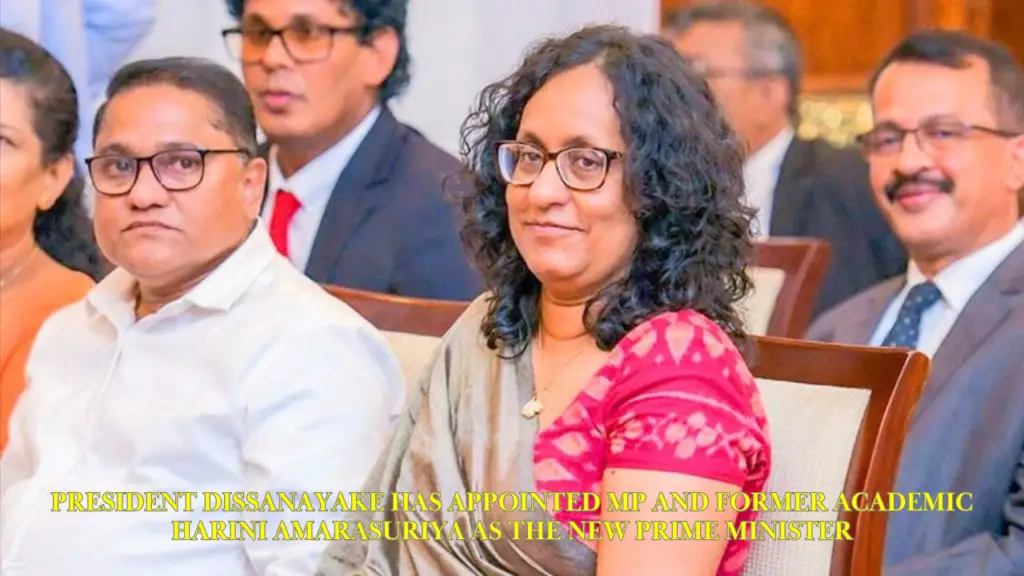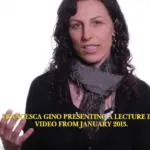President Anura Kumara Dissanayake appointed MP and former academic Harini Amarasuriya as Sri Lanka’s Prime Minister on Tuesday, establishing a four-member Cabinet that will oversee government operations until the parliamentary elections set for November 14. The date for the general elections was confirmed through a gazette published late on Tuesday, which indicated that Parliament would be dissolved at midnight.
After being elected to the presidency in the September 21 polls, Mr. Dissanayake resigned from his position as a Member of Parliament, with a National People’s Power (NPP) member taking his seat. The NPP currently holds three seats in the 225-member legislature, which is expected to be dissolved shortly in preparation for the upcoming general elections.
Key Positions
President Dissanayake is managing several significant portfolios, including Defence, Finance, Energy, Agriculture, and Fisheries. Prime Minister Amarasuriya will oversee Ministries such as Justice, Education, Health, and Trade, while MP Vijitha Herath will take charge of Foreign Affairs among other roles, as stated in an official announcement.
At 54, Ms. Amarasuriya becomes Sri Lanka’s third female Prime Minister, following in the footsteps of Sirimavo Bandaranaike—one of the world’s first female leaders—and her daughter, Chandrika Bandaranaike Kumaratunga, who briefly held the position before becoming President.
An anthropologist by training, Ms. Amarasuriya taught at the Open University of Sri Lanka before entering Parliament through the national list system, which allocates seats based on party vote shares.
Her appointment has been positively received by many in Sri Lanka, including members of the political opposition. In a congratulatory post on the social media platform X, Leader of the Opposition Sajith Premadasa expressed hope that her leadership would encourage Sri Lankan women to showcase their talents and vision.
Ms. Amarasuriya earned her bachelor’s degree in sociology from Hindu College at the University of Delhi in India, followed by a master’s degree in Australia and a PhD from the University of Edinburgh.
Recognition from Scholars
Jonathan Spencer, a long-time Sri Lanka scholar and emeritus professor at the University of Edinburgh who supervised her doctoral studies, praised Ms. Amarasuriya as a person of “extraordinary capabilities.” He noted her combination of integrity and emotional intelligence, acknowledging the significant challenges she will face in her new role.
Before entering politics, Ms. Amarasuriya spent many years in the development sector, focusing on child protection issues and researching low-income communities in Colombo. After completing her PhD, she joined Sri Lanka’s public university system, where she taught sociology and anthropology. She was also an active member of the professional body for university teachers, advocating for increased investment in public education through various campaigns, including strikes.
In collaboration with Prof. Spencer and Sidharthan Maunaguru, she has co-authored an upcoming book that serves as an oral history of dissent and dissidents in Sri Lanka from the 1960s to the 1990s.
Challenges Ahead
The newly elected President and his small team, including Prime Minister Amarasuriya, face substantial challenges as the country continues to deal with the repercussions of the 2022 economic crisis. Citizens are struggling with difficult austerity measures implemented as part of an International Monetary Fund (IMF)-led program.
Following the elections, the IMF expressed its eagerness to collaborate with President Dissanayake and his administration “toward building on the hard-won gains that have helped place Sri Lanka on a path to economic recovery since entering one of its worst economic crises in 2022.”
Furthermore, the IMF indicated it would discuss the timing for the third review of its Sri Lanka program with the new government “as soon as practicable,” according to a statement released on Tuesday.


